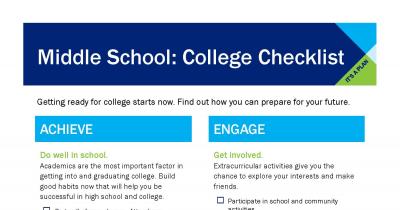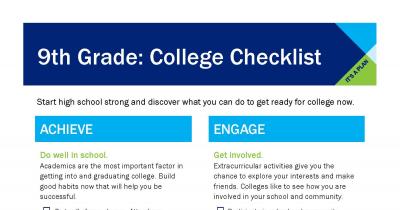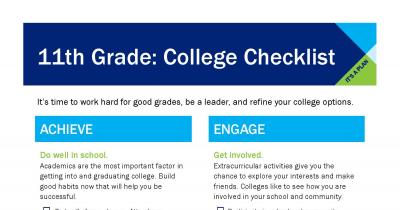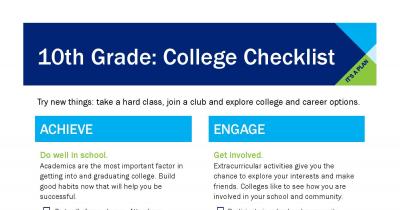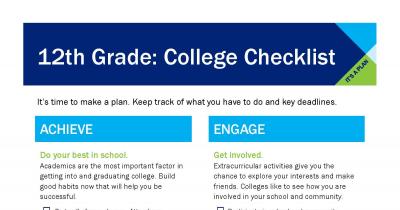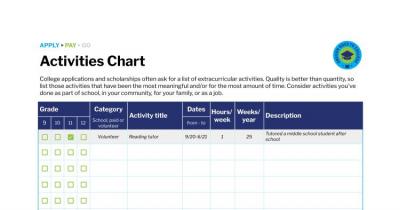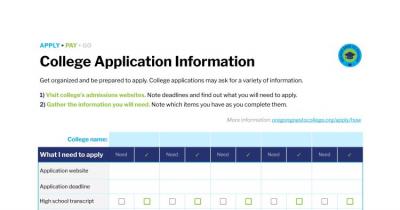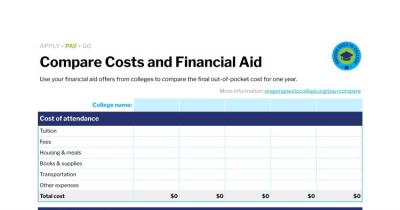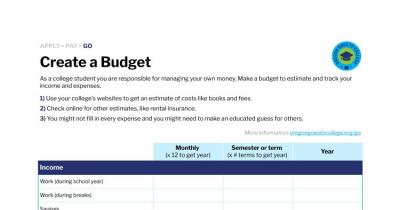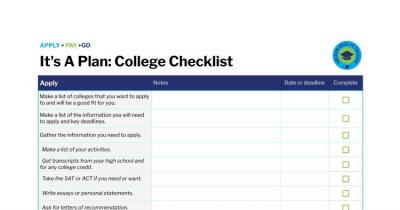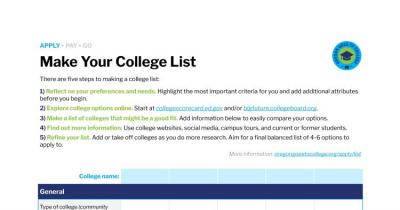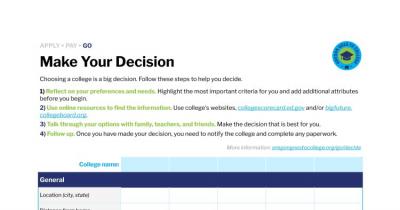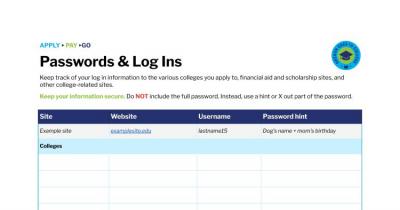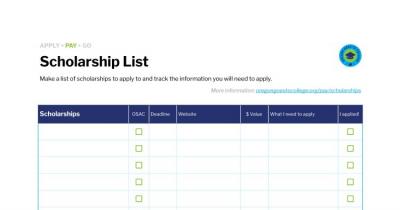
It’s a plan! No matter what grade you’re in, you can get ready for your future.
College preparation timeline
Getting ready for college starts now. Here's an overview of what you should be doing in each grade.
Middle school
Getting ready for college starts now. Explore what you can do to prepare for your future today.
9th grade
Start high school strong and explore what you can do to get ready for college now.
10th grade
Try new things: take a hard class, join a club and explore college and career options.
11th grade
Time to work your hardest for good grades, take on leadership roles, and refine your college options.
12th grade
It's time to make a plan for after high school. Keep track of what you have to do and key deadlines.
Your college preparation checklist
Here's what you need to do to get ready for college.
Build good habits now that will help you be successful.
- Go to all your classes and turn in all assignments.
- Discover how you learn best and adopt strategies to support your preferences. Learn how to take notes, make outlines, and do research.
- Find a system that works for you to keep track of class material, assignments and deadlines.
- Determine the place that you study best (at home or at the library, for example). Practice good study habits.
- Ask for help from your teachers, parents, counselors, tutors, or friends. Use online resources like Khan Academy.
Take a full schedule of classes, including ones that are interesting, challenging, or ideally, both. Colleges would rather see respectable grades in challenging courses than amazing grades in easy classes.
- Take challenging classes, including those that may offer college credit.
- Take as much math as possible, especially if you are interested in STEM fields. Math helps you learn new ways to think and solve problems.
- Take a foreign/world language. Public universities in Oregon require at least two years of the same language.
- Take as many classes as your schedule allows. Explore new interests with electives including career and technical education (CTE) courses.
- JUNIOR FALL: Take the PSAT/NSMQT to qualify for scholarships.
- JUNIOR FALL: Take free practice tests and learn helpful tips for the SAT or ACT.
- JUNIOR SPRING: Sign up for and take the SAT or ACT.
- SENIOR FALL: Sign up for and take the SAT or ACT if you haven’t yet or want to re-take it.
Although not required, colleges like to see how you are involved in your school and community.
- Participate in school and community activities. Try something new! You may spend your time in sports, school clubs, volunteer work, part-time jobs, and/or family responsibilities.
- Quality is better than quantity. Colleges like to see you do the same activity for many years and/or take on a leadership role.
Who you hang out with matters!
- Choose friends that share positive goals and interests.
- Find a mentor – a parent, teacher, counselor, coach, other trusted adult or older student that you can talk to. Talk about your future dreams and plans with them.
- Be a role model and mentor for younger students.
- Take care of your physical and mental health. Exercise, eat healthy, and get enough sleep.
- Be safe online and on your phone.
- Avoid risky behaviors like drinking, doing drugs, and having sex.
- Be kind; treat others with respect.
You can go to college. There are countless possibilities when it comes to both college and career.
- Explore careers that match your interests. Learn what type of education you will need to be successful.
- Get to know the different types of colleges. Take a virtual tour or if possible, visit a college campus. Go with your family, on a school field trip, or attend a summer program. You can also meet with admissions representatives online, at your high school, or during a college fair.
- Think about what is most important to you in a college. Create a list of 5-10 colleges that match your needs.
- Learn the ways to pay for college.
- Estimate what you will actually pay by using the Federal Student Aid Estimatorr and a net price calculator.
- Set up and regularly contribute to a college savings account.
- Make a list of scholarships and apply for any available to you now.
Knowing how to get to college can be confusing.
- Use Oregon Goes To College’s checklists and templates to stay organized.
- Create a file of important documents and list of activities. Include copies of report cards and lists of awards and honors.
- Create and use a professional e-mail for all college-related activities.
- Connect with a counselor, teacher, mentor, or other program in your school or community.
- Make a final list of 4 – 6 colleges that will be a good fit for you.
- Be prepared with all of the information you need which could include taking admissions tests or writing essays.
- Apply by the deadline. Get help at school or from a trusted adult.
- Determine which financial aid applications you will need to complete and apply as early as possible.
- Update your list of scholarships and set aside time each week to apply.
- Compare your financial aid offers from colleges carefully.
- Think carefully and critically in deciding where to go to college.
- Get ready to go to college. Fill out forms including accepting financial aid, attending orientation, and registering for classes.
- Start practicing what it takes to be a successful college student.
- Learn where to get help on campus.

